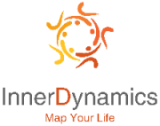Going Beyond The Roles you Play
“In the end, we are not the roles we play. We are the light that animates every soul in the dance we call life.”
To tread a path to self-development, be aware of how your character and identity relate to the roles you play in your life. These roles help you adapt to different situations, and they influence how you think and act. However, getting caught up in a role can limit how you express yourself and how you relate with others.
The Roles You Play
Life gives you the chance to play many roles. You have roles you’re born into, such as a son, daughter, brother, sister, man, woman, father, and mother. Then there are roles you choose to take on, like a student, employee, boss, entrepreneur, friend, boyfriend, girlfriend, husband, and wife.
Additionally there are roles with labels that you may resonate with, such as a charity worker, environmental advocate, political party supporter, or even as simple as being a sports fan.
To achieve success in the role you play, having certain qualities is helpful. Often it is about finding and possessing the right combination of qualities to truly embrace your roles. For instance, to be a great spouse, commonly desirable qualities include being supportive, attentive, caring, loving, communicative, patient, kind, and a great listener.
Accepting and committing to your role can be beneficial. It can lead to personal and professional success if you work hard on the qualities needed.
When Do Roles Become Burdensome?
Roles become a problem when you use them as filters to limit how you express your true self. Take, for example, spending time with a friend the entire Saturday afternoon and not truly interacting with one another. Perhaps you were both too busy hiding behind masks to connect deeply?
When actors play a specific character for a long time, it’s inevitable for them to either assimilate the character or believe they are the character already. It’s the same concept with the roles you play daily. Eventually, these roles affect who you think you are as a person.
If you’re a coach for example and the role you commit to is being a saviour of your clients, then you will be dead set on providing solutions for them. Rather than listen to the entire story, you focus on the problems you want to solve. In that process, you could miss out on important clues to help your client solve the issue effectively.
Roles are unhealthy once you start believing that you can’t be anyone beyond your roles. They become limiting when you sacrifice your happiness for the sake of committing to the parts you play. They are obstructive when you start boxing yourself and only approach situations based on what you think is appropriate for your role.
Don’t Be a Role, Be a Soul
If you feel like you’re starting to detach from your authentic self and it’s affecting how you interact with others, it may be time to let go of the roles. It is easy for you to get caught up in your role. Going back to the example of the coach: You might bring your ‘toolbox’ with you every time you meet a client, so it is always ready when you need a tool.
Frank Ostaseski, shares in Ram Dass’ podcast (42:40) how he takes a different approach. He still has his toolbox. He just doesn’t set it up between him and his client because one is sure to trip over it.
Frank shares that one of the essential lessons he learned is to drop the role and be a soul instead. He is choosing to go beyond his role to focus on his humanity; using kindness, compassion, and empathy when working with clients.This doesn’t mean that he will leave his toolbox at the door. He still keeps his tools in his back pocket so he can reach for them anytime. Yet his toolbox does not define who he is and how he will work with his clients
What have been times when you tripped over your toolbox?
Arbitrary limits hinder you from interacting with people authentically. You can let go of the roles, restrictions, and conditions that you’ve set and really connect with others. Remember, underneath the role you play, there is still you. You will no longer be defined by beliefs, labels, or roles. You are you, and that’s all you need.
Photo: @Nick Karvounis on Unsplash

